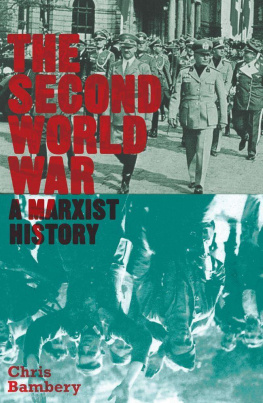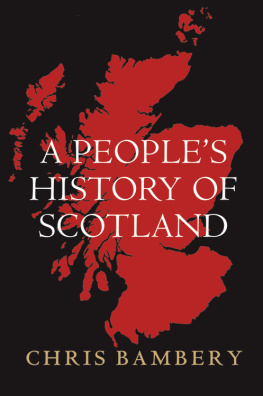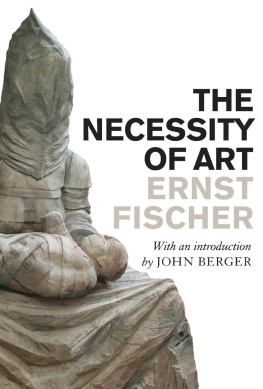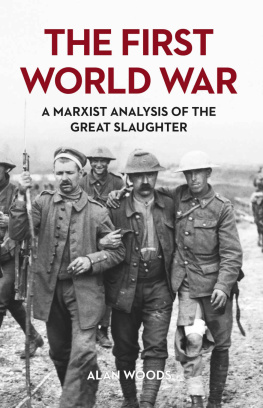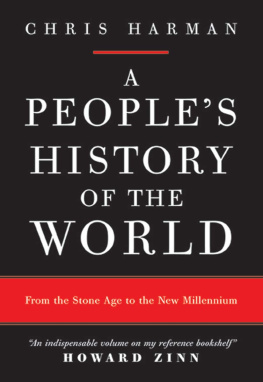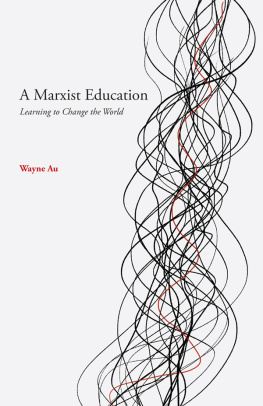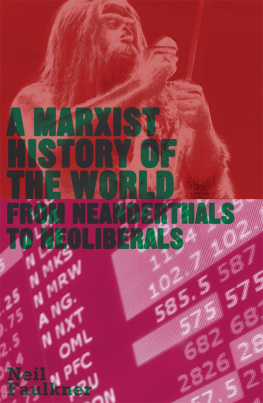Chris Bambery - The Second World War: A Marxist History (Counterfire)
Here you can read online Chris Bambery - The Second World War: A Marxist History (Counterfire) full text of the book (entire story) in english for free. Download pdf and epub, get meaning, cover and reviews about this ebook. year: 2014, publisher: Pluto Press, genre: Politics. Description of the work, (preface) as well as reviews are available. Best literature library LitArk.com created for fans of good reading and offers a wide selection of genres:
Romance novel
Science fiction
Adventure
Detective
Science
History
Home and family
Prose
Art
Politics
Computer
Non-fiction
Religion
Business
Children
Humor
Choose a favorite category and find really read worthwhile books. Enjoy immersion in the world of imagination, feel the emotions of the characters or learn something new for yourself, make an fascinating discovery.
- Book:The Second World War: A Marxist History (Counterfire)
- Author:
- Publisher:Pluto Press
- Genre:
- Year:2014
- Rating:5 / 5
- Favourites:Add to favourites
- Your mark:
- 100
- 1
- 2
- 3
- 4
- 5
The Second World War: A Marxist History (Counterfire): summary, description and annotation
We offer to read an annotation, description, summary or preface (depends on what the author of the book "The Second World War: A Marxist History (Counterfire)" wrote himself). If you haven't found the necessary information about the book — write in the comments, we will try to find it.
The Second World War: A Marxist History (Counterfire) — read online for free the complete book (whole text) full work
Below is the text of the book, divided by pages. System saving the place of the last page read, allows you to conveniently read the book "The Second World War: A Marxist History (Counterfire)" online for free, without having to search again every time where you left off. Put a bookmark, and you can go to the page where you finished reading at any time.
Font size:
Interval:
Bookmark:
The Second World War
Counterfire
Series Editor: Neil Faulkner
Counterfire is a socialist organisation which campaigns against capitalism, war, and injustice. It organises nationally, locally, and through its website and print publications, operating as part of broader mass movements, for a society based on democracy, equality, and human need.
Counterfire stands in the revolutionary Marxist tradition, believing that radical change can come only through the mass action of ordinary people. To find out more, visit www.counterfire.org
This series aims to present radical perspectives on history, society, and current affairs to a general audience of trade unionists, students, and other activists. The best measure of its success will be the degree to which it inspires readers to be active in the struggle to change the world.
Also available:
A Marxist History of the World:
From Neanderthals to Neoliberals
Neil Faulkner
How a Century of War Changed the Lives of Women
Lindsey German
Stitched Up:
The Anti-Capitalist Book of Fashion
Tansy E. Hoskins
The Second World War
A Marxist History
Chris Bambery

First published 2014 by Pluto Press
345 Archway Road, London N6 5AA
www.plutobooks.com
Distributed in the United States of America exclusively by
Palgrave Macmillan, a division of St. Martins Press LLC,
175 Fifth Avenue, New York, NY 10010
Copyright Chris Bambery 2014
The right of Chris Bambery to be identified as the author of this work has been asserted by him in accordance with the Copyright, Designs and Patents Act 1988.
British Library Cataloguing in Publication Data
A catalogue record for this book is available from the British Library
ISBN 978 0 7453 3302 1 Hardback
ISBN 978 0 7453 3301 4 Paperback
ISBN 978 1 8496 4921 6 PDF eBook
ISBN 978 1 8496 4922 3 Kindle eBook
ISBN 978 1 8496 4923 0 EPUB eBook
Library of Congress Cataloging in Publication Data applied for
This book is printed on paper suitable for recycling and made from fully managed and sustained forest sources. Logging, pulping and manufacturing processes are expected to conform to the environmental standards of the country of origin.
10 9 8 7 6 5 4 3 2 1
Typeset from disk by Stanford DTP Services, Northampton, England
Text design by Melanie Patrick
Simultaneously printed digitally by CPI Antony Rowe, Chippenham, UK and
Edwards Bros in the United States of America
To
Sheila Atkinson, Auxiliary Territorial Service,
and Charles Bambery, Royal Navy:
They fought a war in which their enemy was fascism.
Contents
Acknowledgements
I would like to thank the following people for their help in the writing and editing of this book: Alex Anievas for his comments and corrections, the late and much missed Tom Behan, Ian Birchall for his comments, Sebastian Budgen for first suggesting I write it, Neil Faulkner for editing an earlier draft, Lindsey German for her encouragement, and Barbara Rampoli for her support. My comrades of the International Socialist Group (Scotland) deserve thanks for their support and vitality. Thanks to David Castle, my excellent editor, and everyone at Pluto Press.
Apologies to Carmela Ozzi and Malcolm and Leonardo Ozzi Bambery who have had to put up with me writing in the kitchen, listening to opera and preventing them playing games on the computer.
Whenever I have done meetings and lectures on the Second World War I have always recommended my three favourite books on the subject, so here goes. To understand what the British ruling class was fighting for and to grasp their ineffectiveness at waging war, read Evelyn Waughs Sword of Honour trilogy. For the reality of Russias war and of Stalingrad, Vasily Grossmans Life and Fate. And for the sheer scale of the Yugoslav partisan war, Milovan Djilass memoir, Wartime.
Chris Bambery
November 2013
Introduction
The Second World War casts a long shadow. It dominates the various history channels on offer, along with the rise of the Nazis which preceded it. Popular films about the war still command vast audiences and are repeated endlessly on the small screen. Its ghost has also been present in the wars which have scarred our planet in recent years. The war against terror following the attacks of 11 September 2001 was cast as a continuance of democracys struggle against a new totalitarian threat which echoed that of the Nazis, while opponents of the wars in Iraq and Afghanistan were regularly portrayed as appeasers. As the US radio talk-show host and Fox News Channel political analyst, Tammy Bruce, argued in September 2002:
Now, in 2002, it is our responsibility to stop Saddam Hussein and yet the whining grandchildren of Chamberlain, now strewn throughout Europe and the world, have felt compelled to demand we not attack Iraq no one, especially in Europe, has the moral standing to tell us what to do when faced with war and evil. They lost that right when they accepted hundreds of thousands of American deaths to save their soil from the monsters they refused to stop early on.
Iraq in 2003 stood mid-table in the league of global power, with an economy wrecked by a decade of international sanctions. In comparison, when the Second World War began, Germany was the primary military power in the world. Its economy was the second biggest. Attempts to compare Saddam Hussein with Hitler simply demean the latters crimes, above all the Holocaust. Saddam was a brutal mass murderer but his crimes do not stand comparison with Hitlers.
At the time of the first Gulf War in 199091 we were already being told that Saddam Hussein was another Hitler, and that anything short of military force, for example economic sanctions, would be giving way to dictators. The Sun pilloried spineless appeasers who believe a combination of sanctions and sweet reason will be enough, while the Daily Express ridiculed the appeasers and the give-sanctions-a-chance-brigade (both from 16 January 1991). The same arguments were deployed again in the build up to the attacks by NATO on Serbia in 1995 and 1999.
This attempt to paint critics of the USs and UKs wars as spiritual heirs of the British prime minister, Neville Chamberlain, who so desperately tried to buy off Hitler in order to avert war, dates back at least to 1982 when Britain went to war with Argentina over the Falkland Islands, or Malvinas. When the House of Commons debated the decision to go to war the leader of the opposition Labour Party was Michael Foot. Four decades earlier Foot had railed against appeasement and contributed to The Guilty Men, a bestselling pamphlet which appeared in the summer of 1940, blaming Chamberlain and his supporters for
Du Cann was consciously echoing the cry of Leo Amery in September 1939. As Chamberlain prevaricated over declaring war on Hitler, despite Germanys invasion of Poland, the acting Labour leader, Arthur Greenwood, rose to reply. Greenwood began by saying he would speak for the Labour Party; Amery, a right-wing Tory and champion of imperialism, shouted out Speak for England! This is held up as one of those great Westminster moments.
When US and British political leaders allege today that anti-war leftists and liberals are the heirs to those who curried favour with Hitler, they ignore the simple fact that the appeasers of the 1930s were largely on the right and included virtually the entire British Conservative Party, senior members of the royal family, and the pro-Tory press. These were not rogue elements in British ruling circles. They represented majority opinion. The near revolutionary events which engulfed France in 193436, and the full-scale revolution at the commencement of the Spanish Civil War, had reinforced their view that Communism was the main enemy. In London, Berlin, Paris, Moscow, Washington and Tokyo there were real fears before and during the war that social conflict could break through to challenge the ruling order.
Next pageFont size:
Interval:
Bookmark:
Similar books «The Second World War: A Marxist History (Counterfire)»
Look at similar books to The Second World War: A Marxist History (Counterfire). We have selected literature similar in name and meaning in the hope of providing readers with more options to find new, interesting, not yet read works.
Discussion, reviews of the book The Second World War: A Marxist History (Counterfire) and just readers' own opinions. Leave your comments, write what you think about the work, its meaning or the main characters. Specify what exactly you liked and what you didn't like, and why you think so.

